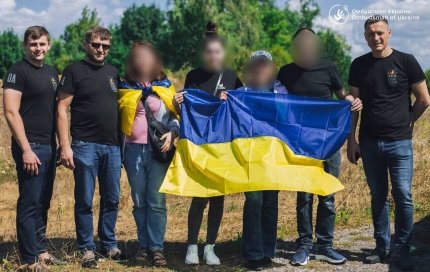On August 2, the Ombudsman of Ukraine, Dmytro Lubinets, announced the return of a brother and sister from the temporarily occupied territory of Luhansk region.
Points of attention
- Ukraine's Ombudsman Dmytro Lubinets is leading efforts to reunite families and bring Ukrainian citizens back home from the occupied territories.
- The return of two children from Luhansk region exemplifies Ukraine's commitment to the Geneva Convention on the Protection of the Civilian Population in Time of War.
- The documentary 'Mutilated Childhood' sheds light on Russia's abduction of Ukrainian children and the harsh realities they face during captivity, torture, and separation from their families.
- Humanitarian cooperation between Ukraine and Russia, such as the '200 for 200' exchange of prisoners of war, is a step towards addressing humanitarian issues in the conflict.
- Ukraine reiterates its dedication to returning all of its citizens home and working towards a peaceful resolution to the ongoing conflict with Russia.
Ukraine returned two children from the TOT of Luhansk region
As part of the family reunification provided for by the Geneva Convention on the Protection of the Civilian Population in Time of War, it was possible to return a daughter and a son from Luhansk region, who had already met their mother, to the territory controlled by Ukraine.
A woman who was reunited with her daughter also returned to her native land.
In addition, there was a meeting of the employees of our Office with the employees of the office of the Russian Commissioner for Human Rights, at which both sides exchanged letters from prisoners of war according to the formula "200 for 200" and discussed humanitarian issues.

Dmytro Lubinets
Ombudsman of Ukraine
Ukraine once again expresses its maximum interest in returning our citizens home and is working on it.

What is known about Russia's abduction of children from the occupied territories of Ukraine
In 2023, the Online.UA team presented the documentary "Mutilated Childhood", which reveals the truth about Russia's abduction of Ukrainian children from the temporarily occupied territories of Ukraine.
The film contains real stories of children and their families affected by Russia's war against Ukraine, comments by leading scientists, psychologists, lawyers and experts on the protection of children's rights.
The heroes of the tape went through Russian captivity, torture, abduction to a health camp, some were separated from their parents during the so-called filtering measures.




